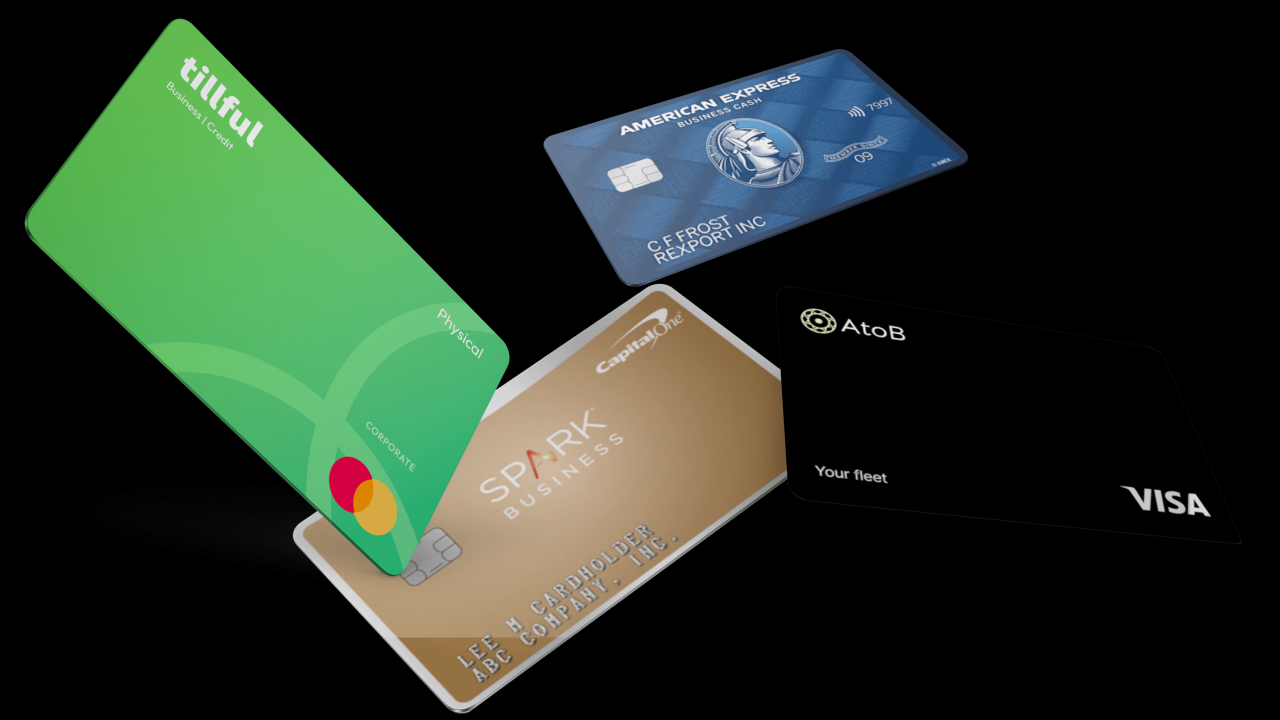Signature business credit cards are designed for businesses that need more than just a standard credit card. These cards offer exclusive perks and rewards, including higher credit limits, travel benefits, and cash back rewards. They are specifically targeted towards businesses that are looking to enhance their financial management and reward their efforts with premium benefits.
These cards often come with annual fees, but the benefits and rewards can outweigh the cost for businesses that utilize them effectively. This guide will delve into the key features, benefits, and considerations involved in choosing and managing a signature business credit card.
Understanding Signature Business Credit Cards

Signature business credit cards are a premium tier of business credit cards designed for businesses with higher creditworthiness and spending needs. These cards offer a range of benefits and perks not found in standard business credit cards, making them a valuable tool for established businesses and entrepreneurs looking to maximize rewards and streamline their finances.
Key Features of Signature Business Credit Cards
Signature business credit cards stand out from their standard counterparts due to their enhanced features and benefits. These features cater to the specific needs of businesses with higher spending volumes and a desire for premium service.
- Higher Credit Limits: Signature business credit cards typically offer significantly higher credit limits compared to standard business cards. This allows businesses to manage larger expenses and have greater financial flexibility.
- Enhanced Rewards Programs: These cards often feature more lucrative rewards programs, with higher earning rates on purchases and a wider range of redemption options. This allows businesses to maximize their return on spending.
- Exclusive Travel Perks: Signature business credit cards often come with exclusive travel perks such as airport lounge access, travel insurance, and priority boarding. These perks can significantly enhance the travel experience for business owners and employees.
- Concierge Services: Many signature business credit cards offer dedicated concierge services, providing personalized assistance with travel arrangements, event planning, and other services. This can save businesses time and effort while ensuring a seamless experience.
- Premium Card Materials: Signature business credit cards are often made from high-quality materials like metal or embossed plastic, adding a touch of exclusivity and prestige.
Target Audience for Signature Business Credit Cards
Signature business credit cards are designed for a specific audience of businesses and entrepreneurs who can benefit from their premium features and rewards.
- Established Businesses: Companies with a proven track record of profitability and financial stability are well-suited for signature business credit cards. These cards can help them manage their expenses efficiently and maximize their rewards.
- High-Spending Businesses: Businesses with significant spending volumes, such as those in the travel, hospitality, or retail industries, can benefit from the higher credit limits and rewards offered by signature business cards.
- Entrepreneurs: Ambitious entrepreneurs who are looking to build their businesses and access premium benefits can find value in signature business credit cards. These cards can provide the financial flexibility and rewards needed to support their growth.
- Businesses Seeking Exclusivity: Businesses that value prestige and exclusivity may be drawn to signature business credit cards, which often come with premium card materials and dedicated concierge services.
Benefits of Signature Business Credit Cards
Signature business credit cards are designed to offer exclusive perks and rewards tailored to the needs of business owners and professionals. These cards provide a range of benefits that can help you save money, earn valuable rewards, and enhance your travel experiences.
Travel Benefits
Travel benefits are a key advantage of signature business credit cards. These cards offer a range of perks that can make your business trips more comfortable and rewarding.
- Airport Lounge Access: Many signature business credit cards provide complimentary access to airport lounges worldwide. This allows you to relax in a comfortable environment, enjoy complimentary food and drinks, and access Wi-Fi before your flight. For example, the Chase Sapphire Reserve card offers access to over 1,400 airport lounges through the Priority Pass program.
- Travel Insurance: Signature business credit cards often include travel insurance coverage, such as trip cancellation, baggage delay, and medical insurance. This can provide peace of mind knowing you are protected in case of unexpected events during your travels. For example, the American Express Platinum Card offers travel insurance coverage that includes trip cancellation and interruption, baggage loss and damage, and medical and emergency evacuation.
- Points Redemption: Signature business credit cards typically offer generous points or miles earning programs. You can redeem these points for a variety of travel rewards, such as airline tickets, hotel stays, and car rentals. Some cards offer bonus points for spending on specific categories, such as travel, dining, or office supplies. For instance, the Capital One Venture X Rewards Credit Card offers 2x miles on all purchases, which can be redeemed for travel at a value of 1 cent per mile.
Financial Benefits
Signature business credit cards also offer financial benefits that can help you manage your business expenses and improve your credit score.
- Higher Credit Limits: Signature business credit cards typically have higher credit limits than standard business credit cards. This can provide you with more financial flexibility to make large purchases and manage your cash flow effectively. For example, the Ink Business Preferred Credit Card offers a credit limit of up to $100,000, which can be a significant advantage for businesses with high expenses.
- Cash Back Rewards: Some signature business credit cards offer cash back rewards on your purchases. This can help you earn money back on your business expenses, which can be used to offset your costs or reinvest in your business. For example, the Chase Ink Business Cash Credit Card offers 5% cash back on the first $25,000 spent each year on office supplies, internet, cable, and phone services, and 1% cash back on all other purchases.
- Travel Credits: Many signature business credit cards offer travel credits, such as statement credits for airline tickets, hotel stays, or car rentals. These credits can help you save money on your business travel expenses. For example, the American Express Platinum Card offers a $200 annual airline fee credit, which can be used to offset the cost of airline baggage fees, lounge access fees, or other airline charges.
Considerations for Choosing a Signature Business Credit Card
Choosing the right signature business credit card is crucial for maximizing rewards and managing your business finances effectively. A thoughtful evaluation of various factors can help you find the card that best suits your specific needs and goals.
Factors to Consider
- Rewards Program: Explore the rewards structure offered by each card. Consider whether you prefer cash back, travel miles, points redeemable for merchandise, or other perks. Some cards may offer bonus categories that align with your business expenses.
- Annual Fee: Signature business credit cards often carry annual fees. Compare the annual fee to the potential rewards and benefits you might receive. Calculate the value of the rewards you expect to earn to ensure the fee is worthwhile.
- Interest Rates: Examine the interest rates for purchases and balance transfers. Opt for a card with a competitive interest rate, especially if you anticipate carrying a balance.
- Credit Limit: A higher credit limit can provide greater flexibility for business expenses. Consider your expected spending needs and the credit limit offered by the card.
- Perks and Benefits: Evaluate the additional perks and benefits offered, such as travel insurance, purchase protection, or concierge services. These features can add value to your card and enhance your business operations.
- Application Requirements: Review the eligibility criteria for each card, including credit score requirements and business revenue thresholds. Ensure you meet the qualifications before applying.
Comparing Signature Business Credit Card Offerings
- Chase Ink Business Preferred Credit Card: This card offers 3x points on travel, shipping, and internet, phone, and cable services, and 1x point on all other purchases. It comes with an annual fee of $95 but offers a generous sign-up bonus and travel perks.
- American Express Business Platinum Card: This card provides 1.25x points on eligible purchases and access to various travel and business benefits, including airport lounge access and travel insurance. It carries an annual fee of $595 but offers a comprehensive rewards program and premium services.
- Capital One Spark Miles for Business: This card earns 2x miles per dollar spent on travel and entertainment, and 1x mile on all other purchases. It features no foreign transaction fees and a generous sign-up bonus.
Analyzing Annual Fees, Interest Rates, and Other Charges
- Annual Fee: Annual fees can range from $95 to $595 or more, depending on the card’s benefits and rewards program. Compare the fee to the potential rewards and benefits to determine if the card is a good value for your business.
- Interest Rates: Interest rates for purchases and balance transfers can vary significantly. Choose a card with a competitive interest rate, especially if you plan to carry a balance.
- Other Charges: Some cards may have additional fees, such as late payment fees, over-limit fees, or balance transfer fees. Review the terms and conditions carefully to understand all associated charges.
Applying for and Managing a Signature Business Credit Card

Securing and effectively managing a signature business credit card requires careful consideration of the application process, maximizing benefits, and responsible financial practices. This section provides a comprehensive guide to navigate these aspects successfully.
The Application Process
Applying for a signature business credit card involves several steps designed to assess your business’s creditworthiness and eligibility. The application process typically includes:
- Gathering Required Information: Prepare essential documents like your business’s tax ID number (EIN), recent business tax returns, financial statements, and personal credit history information. This information helps the issuer evaluate your business’s financial stability and creditworthiness.
- Completing the Application: Submit the application form online or through a credit card issuer representative. The application will ask for details about your business, including its legal structure, industry, annual revenue, and number of employees.
- Credit Check: The issuer will conduct a credit check on your business and personal credit history. A strong credit score increases your chances of approval and can potentially secure a higher credit limit.
- Review and Approval: The issuer will review your application and supporting documents. If approved, you will receive a credit card with a specified credit limit. The approval process may take a few days or weeks depending on the issuer and the complexity of your application.
Maximizing Benefits and Rewards
Signature business credit cards offer valuable perks that can enhance your business operations and financial management. To fully leverage these benefits, consider these strategies:
- Utilize Travel Rewards: Accumulate travel points or miles by using your card for business travel expenses. These rewards can be redeemed for flights, hotel stays, and other travel-related purchases, saving your business significant costs.
- Take Advantage of Cash Back Rewards: Earn cash back on eligible purchases, allowing you to offset business expenses or use the rewards for other business needs. Choose a card with a high cash back rate in categories relevant to your business, such as dining, office supplies, or online purchases.
- Explore Bonus Categories: Look for cards that offer bonus rewards for spending in specific industries or categories. For example, a card may provide increased rewards for purchases made at restaurants, hotels, or online retailers.
- Leverage Concierge Services: Some signature business credit cards provide access to concierge services, offering assistance with travel arrangements, event planning, or other personalized services. This can be particularly helpful for busy business owners who need assistance with time-consuming tasks.
Strategies for Responsible Credit Card Management
Managing your signature business credit card responsibly is crucial for maintaining a healthy credit score and avoiding unnecessary debt. Implement these strategies to ensure responsible credit card usage:
- Establish a Budget: Create a detailed budget that Artikels your expected business expenses and revenue. This will help you track your spending and ensure you can afford your credit card payments.
- Set Spending Limits: Establish spending limits for each employee or department using the card. This helps prevent overspending and ensures you stay within your budget.
- Pay Your Balance in Full: Aim to pay your entire credit card balance each month. This avoids accumulating interest charges and keeps your credit utilization low, which benefits your credit score.
- Monitor Your Account Regularly: Regularly review your credit card statements for any unauthorized charges or errors. This helps you identify potential issues and resolve them promptly.
- Consider a Balance Transfer: If you have high-interest debt on other credit cards, consider transferring the balance to your signature business credit card with a lower interest rate. This can save you money on interest charges and help you pay off the debt faster.
Alternatives to Signature Business Credit Cards

While signature business credit cards offer numerous advantages, they may not always be the best fit for every business. Depending on your specific needs and financial situation, exploring alternative financial products can prove beneficial.
These alternatives provide different approaches to managing business finances and can offer unique benefits, such as lower interest rates, flexible repayment terms, or tailored solutions for specific industries.
Business Lines of Credit
Business lines of credit are revolving credit accounts that allow businesses to borrow funds as needed, up to a pre-approved limit. They offer flexibility in managing cash flow and can be a valuable tool for short-term financing needs, such as seasonal inventory purchases or unexpected expenses.
Advantages of Business Lines of Credit
- Flexible Access to Funds: Businesses can draw funds as needed, making it a convenient option for managing cash flow fluctuations.
- Lower Interest Rates: Compared to business credit cards, lines of credit often have lower interest rates, particularly for businesses with good credit scores.
- Interest Charged Only on Used Funds: You only pay interest on the amount you actually borrow, making it a cost-effective option when only a portion of the credit line is utilized.
Disadvantages of Business Lines of Credit
- Variable Interest Rates: Interest rates on lines of credit can fluctuate, potentially leading to higher costs over time.
- Potential for Overspending: The availability of revolving credit can encourage overspending, which can negatively impact cash flow management.
- Credit Line Drawdown Limits: Lenders may impose limits on the amount that can be drawn at any given time, potentially restricting access to funds during critical periods.
Business Loans, Signature business credit card
Business loans are lump-sum disbursements of funds that are repaid over a fixed period with interest. They are typically used for larger capital expenditures, such as purchasing equipment, expanding facilities, or investing in new technology.
Advantages of Business Loans
- Fixed Interest Rates: Business loans often have fixed interest rates, providing predictable repayment costs and reducing the risk of interest rate fluctuations.
- Longer Repayment Terms: Compared to credit cards, business loans offer longer repayment terms, making monthly payments more manageable.
- Higher Loan Amounts: Business loans can provide larger sums of money, making them suitable for significant investments.
Disadvantages of Business Loans
- Stricter Eligibility Requirements: Obtaining a business loan typically involves more stringent eligibility requirements, including a strong credit history and a solid business plan.
- Lengthy Approval Process: The approval process for business loans can be time-consuming, potentially delaying access to funds when needed.
- Collateral Requirements: Some lenders may require collateral, such as property or equipment, as security for the loan, potentially putting assets at risk.
Merchant Cash Advances
Merchant cash advances provide businesses with upfront capital in exchange for a percentage of future sales. They are a quick and convenient option for businesses that need immediate funding, but they often come with high fees and repayment terms that can be challenging.
Advantages of Merchant Cash Advances
- Fast Funding: Merchant cash advances typically provide funds quickly, often within a few days.
- Minimal Documentation: The application process for merchant cash advances often requires less documentation than traditional loans.
- No Collateral Required: Merchant cash advances generally do not require collateral, making them accessible to businesses with limited assets.
Disadvantages of Merchant Cash Advances
- High Fees: Merchant cash advances often come with high fees, including origination fees, processing fees, and a percentage of future sales.
- Short Repayment Terms: Repayment terms for merchant cash advances are typically short, often requiring daily or weekly payments, which can strain cash flow.
- Potential for Debt Trap: The high fees and short repayment terms can create a cycle of debt, making it difficult for businesses to catch up on payments.
Invoice Factoring
Invoice factoring is a financing option where businesses sell their unpaid invoices to a factoring company at a discount. This provides businesses with immediate cash flow while the factoring company collects payment from the customer.
Advantages of Invoice Factoring
- Improved Cash Flow: Invoice factoring provides businesses with immediate access to funds, improving cash flow and reducing the risk of late payments.
- Credit Risk Transfer: Factoring companies assume the risk of non-payment, reducing the financial burden on businesses.
- No Collateral Required: Invoice factoring typically does not require collateral, making it accessible to businesses with limited assets.
Disadvantages of Invoice Factoring
- Discount Fees: Factoring companies charge fees for their services, which can reduce the amount of cash received from invoices.
- Loss of Control: Businesses relinquish control over the collection process to the factoring company, potentially affecting customer relationships.
- Limited Availability: Invoice factoring is not available for all industries or types of invoices, limiting its accessibility.
Summary
Choosing the right signature business credit card can be a strategic decision for any business. By carefully considering your business needs, evaluating different card offerings, and understanding the associated fees and benefits, you can make an informed decision that aligns with your financial goals. Remember, responsible credit card management is crucial to maximizing the benefits and minimizing the risks.
Frequently Asked Questions
What are the main differences between a signature business credit card and a standard business credit card?
Signature business credit cards typically offer higher credit limits, more lucrative rewards, and exclusive travel benefits compared to standard business credit cards. They often come with higher annual fees and stricter eligibility requirements.
How do I know if a signature business credit card is right for my business?
Consider your business’s spending habits, travel needs, and financial goals. If you anticipate significant business expenses, value travel perks, and are willing to pay an annual fee, a signature business credit card could be beneficial. However, if your business has minimal spending and doesn’t prioritize travel rewards, a standard business credit card might be a better option.
What are some tips for managing a signature business credit card responsibly?
Set a budget for your business expenses, track your spending regularly, and make timely payments to avoid interest charges. Take advantage of the rewards and benefits offered by the card, but avoid overspending or accumulating excessive debt.
 Norfolk Publications Publications ORG in Norfolk!
Norfolk Publications Publications ORG in Norfolk!

